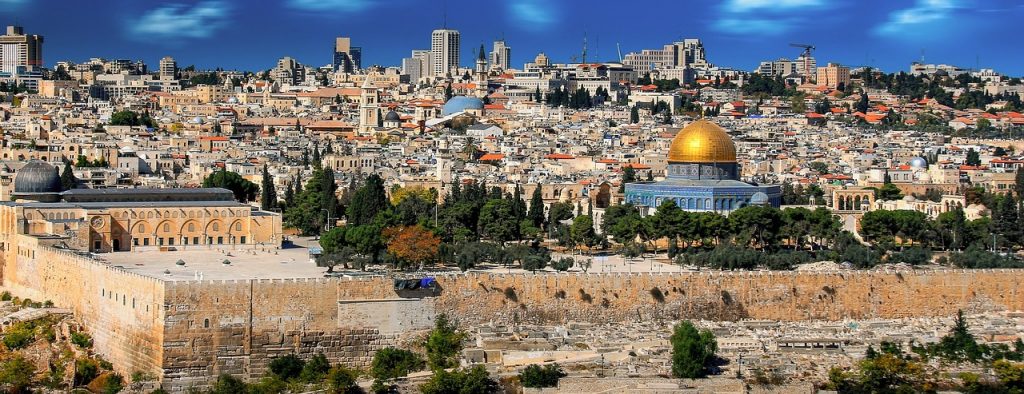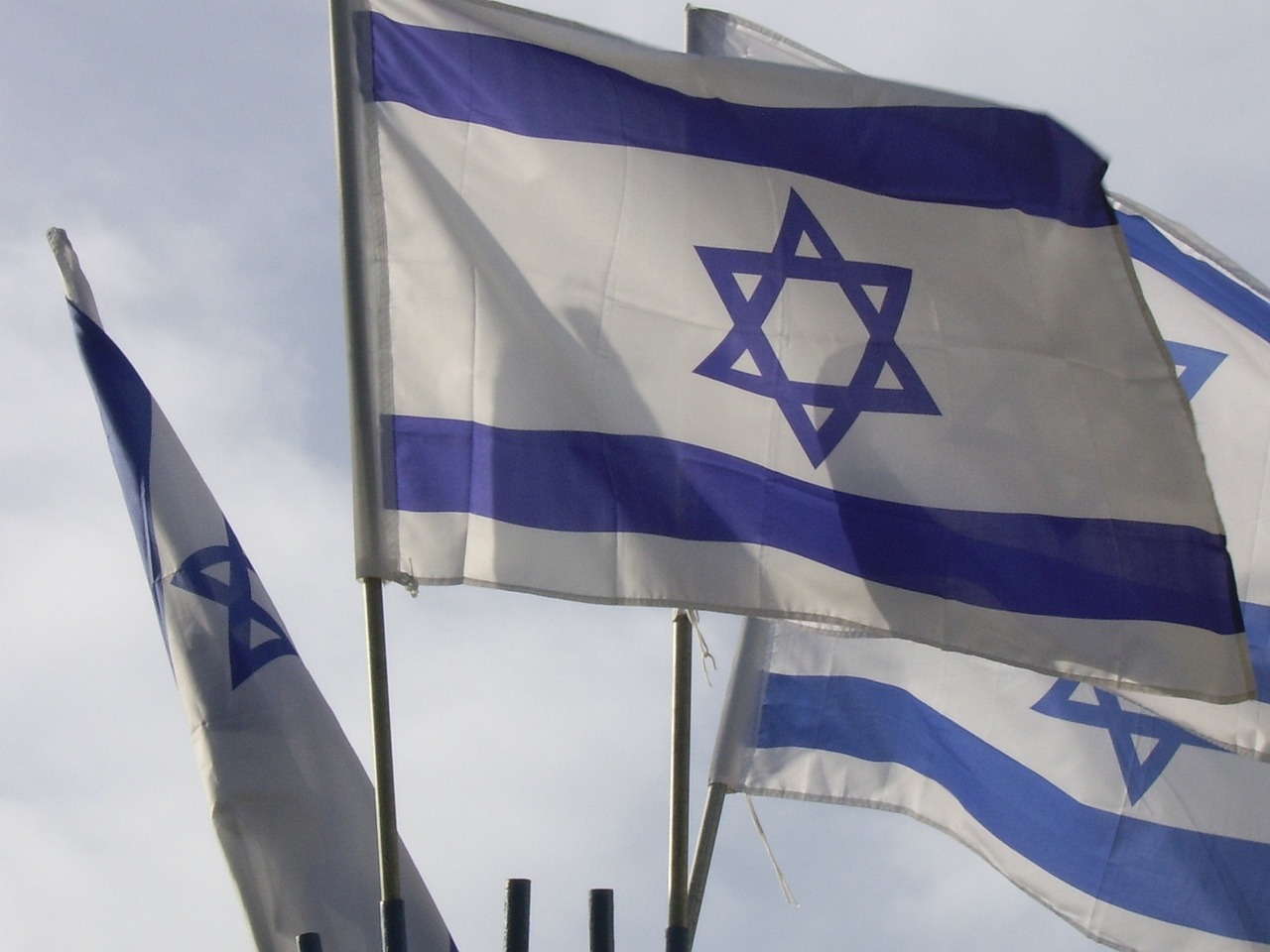Recently, more than 3 million tourists visited the country of Israel, bringing with them an estimated NIS 20 billion (US$5 Billion), greatly outclassing the initial NIS 1.2 Billion budget of the Ministry of Tourism.
Filipino tourism to the Holy Land has also increased. In 2017, Israel saw a 42% increase of Filipino tourists. With visa-free travel, historic and religious sites, beautiful natural scenery, and a thriving business community, Israel remains a popular destination for Filipinos.
Visa-Free Travel for Filipino Tourists
Bilateral relations between the Philippines and Israel go back 60 years to the Treaty of Friendship in 1958, by which the Philippines was the only country in Asia to recognize the State of Israel at the time.
However, friendliness between the two countries began at the beginning of the Second World War, when the Philippine government welcomed, with open arms, more than 2000 Jewish refugees fleeing persecution in Europe.
This act of kindness from a nation on the other side of the world did not go unnoticed by Israel. Since 1969, Israel has granted visa-free travel to Filipinos in recognition of the Asian nation’s diplomacy.
After a short interview at their point of entry, tourists with Philippine passports can stay in Israel for up to 90 days, provided that they have:
- Philippine Passport with at least 6 months of validity beyond the period of intended stay
- Confirmed round-trip ticket, or confirmed tickets to another destination
- Confirmed hotel reservations for the duration of intended stay, or a letter of invitation if
- Travel itinerary (booking through a travel agency will make this easier)
- Sufficient pocket money, or proof of funding in the form of a bank statement (although the latter is optional, it does make it easier to prove that you have the necessary funds to travel).
Filipino tourists are allowed to enter and stay in Israel for 90 days, but longer stays, or for students and people looking for employment, will require visas. Take note that Israel has certain visa requirements for Philippine passport holders coming in to their country to study or work.

Work Visas
People going to Israel for employment need to apply for an Israeli work visa or B1 work visa.
Applicants who are single in status are required to:
- Accomplish the Visa Application Form provided by the Embassy of Israel (with 2 recent passport-sized photos).
- Obtain an original NBI Clearance for travel abroad with 6 months validity from date of issue.
- Apply for a Singleness Certificate from NSO, authenticated by either the DFA or the Embassy of Israel
- Provide a photocopy of the Employment Contract, authenticated by the Embassy of the Philippines in Israel.
- Provide a photocopy of a Medical Certificate with 3 months validity from date of issue. Note that, in addition to the Department of Health’s standard medical requirements, the Embassy of Israel will also require an Hepatitis B surface antigen test, anti-HCV (Hepatitis C screening), HIV test, and specific X-ray to test Tuberculosis.
- Provide a photocopy of the OEC worker’s or e-receipt copy.
- Provide a photocopy of NSO-certified Birth Certificate
- Provide proof of identify.
Married applicants going to Israel for employment have to fulfil additional requirements. Aside from the ones mentioned above, they are also required to:
- Provide a photocopy of their Marriage Contract from the NSO, authenticated by either the DFA or the Embassy of Israel.
- Provide photocopies of their wedding pictures
- Make a personal appearance along with their spouse to the Embassy of Israel
- Provide an Identification Card of the spouse. This ID card can be:
- Passport
- Driver’s License
- SSS
- Postal
- Company ID
- School ID
- If the spouse is abroad, please submit a photocopy of any of the following documents:
- Passport
- Visa
- Departure and Arrival Immigration stamp
- Certificate of appearance issued by the Philippine Embassy of the country where the spouse is situated.
- If widowed, a photocopy of the spouse’s Death Certificate is required, authenticated by either the DFA or the Embassy of Israel.
- The Embassy may also require other sufficient proofs of identity, such as valid government IDs, bank statements, and the like.
Special Working Visa
People working for diplomats, foreign missions, consuls, and other official institutions are required to apply for a special working visa. To start this, applicants must request their foreign mission’s representative to call or get in touch with Mr. Yoval Fisher at 00972-2-530-3640 at the Ministry of Foreign Affairs in Israel.
After initiating a visa request at the Ministry of Foreign Affairs, the applicant should present the following requirements to the Embassy of Israel in Manila:
- 2 official Visa Application Forms provided by the Embassy of Israel
- 2 passport-sized pictures, either in color or black & white
- NBI Clearance valid for travel abroad or to the Middle East with 6 months validity from the date of issue.
- Medical Certificate from an accredited clinic. Note that, in addition to the standard medical requirements set by the Department of Health, the Embassy of Israel also requires an HIV test, Hepatitis B surface antigen test, anti-HCV (Hepatitis C screening) and specific X-rays to test Tuberculosis.
- Signed declaration as to the absence of relatives in Israel or the names of the relatives, if any, who are working in Israel.
Student Visas
Students who have been accepted to study or train in Israel must apply for an Israeli study visa, or A/2 visa.
To apply for an A/2 visa, applicants must submit:
- Two passport-sized photos
- Passport with at least 6 months validity beyond the period of intended stay
- Proof of funding
- Proof of enrollment with an Israeli institution
- Valid flight tickets
People participating in a MASHAV or Agency for International Development Cooperation course are required to:
- Submit a letter confirming their participation in the MASHAV course (may be sent via fax)
- Submit a copy of their flight itinerary to the MASHAV Coordinator.
- Schedule an appointment for visa application with the Consular Office.
- Fulfill the above requirements no earlier than 5 days prior to departure for Israel.
People participating in a Kibbutz volunteer course are required to:
- Inform the Embassy of Israel in writing of their acceptance to a training program. In this letter, include the complete name of the Kibbutz, length of training, contact details, and a photocopy of a valid passport.
- Send full name, birthdate, and passport number to the Kibbutz, who will then inform the Ministry of Interior.
- Call the Consular Office to check if authorization for a visa has arrived and schedule an appointment for visa application.
Israeli Stamp Issues
It is worth noting that while Israel maintains healthy diplomatic relations with a number of Arab countries, they also have neighbors who will not permit travel to their country if they find an Israeli stamp on a passport.
Countries that accept visitors with Israeli stamps on their passports include:
- Egypt
- Jordan
- Morocco
- Oman
- United Arab Emirates
Meanwhile, countries that DO NOT accept visitors with Israeli stamps include:
- Iran
- Iraq
- Kuwait
- Lebanon
- Libya
- Pakistan
- Saudi Arabia
- Sudan
- Syria
- Yemen
Israel is aware of the difficulty travelers might face if they’re going to multiple territories in the Middle East. To work around this restriction, you can request Israeli immigration to issue their stamp on a separate piece of paper. When in doubt, always ask the travel agency booking your itinerary about this to avoid untoward incidents.
It’s no secret that Israel is such a popular place – and it’s no wonder why. From the religious pilgrimage centers of Jerusalem and Nazareth to the metropolitan charm of Tel Aviv, Israel manages to seamlessly meld its natural wonders, historical heritage, and technological innovation.

